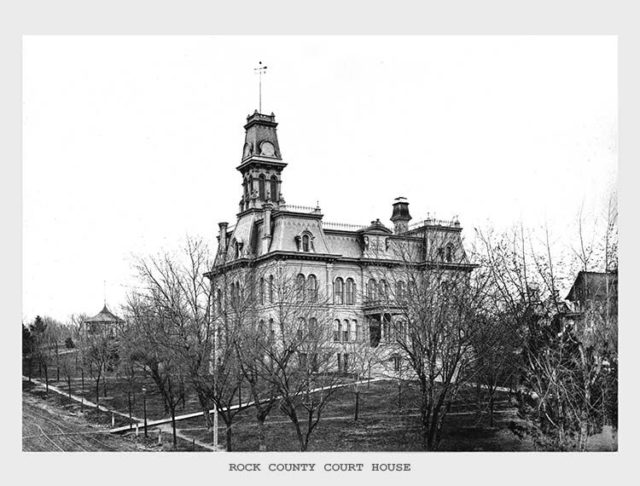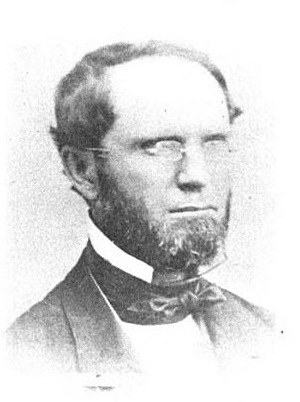“Finished Leavenworth case and lost it. Am too mad to say anymore.”
Lavinia Goodell, January 29, 1876
Closing arguments in the Leavenworth divorce were heard on January 25, 1876. Lavinia had spent a great deal of time preparing and was satisfied with her efforts. Her diary entry for that day noted:
At Court House all day arguing Leavenworth case. I “spouted” about two hours in morning and Bennett all afternoon…. Am immensely relieved that it is over. Quite an audience out.

The Janesville Gaztte reported:
The argument of the celebrated divorce suit from the town of LaPrairie, entitled Elizabeth Leavenworth against Ira H. Leavenworth, was taken up today. The testimony therein was completed about two weeks ago, but the argument was deferred by reason of the large amount of business on hand. Miss Lavinia Goodell made the opening address for the plaintiff this morning, in which she reviewed the testimony and cited numerous authorities. The effort of Miss Goodell added, in the estimation of all who heard her, to the flattering reputation she has made for herself as an advocate at the bar…. The courtroom was thronged … by parties from LaPrairie, where this case is exciting the greatest interest.
Judge Conger issued his ruling in the case on January 29. Lavinia’s terse diary entry expressed her feelings: “Finished Leavenworth case and lost it. Am too mad to say anymore.” The Gazette said, “This has been one of the most hotly contested divorce cases ever tried in this county, and has created more interest, consumed more time in its trial, brought on longer and abler arguments than any other suits of its character ever known in the circuit.”

Lavinia expanded on her disappointment in the outcome in a letter to her cousin, Sarah Thomas:
The decision surprised and outraged every unprejudiced person. Judge Conger is notoriously opposed to divorces and never will grant one when he can help it. We thot our case was so strong he couldn’t help it. Of course then she gets no alimony, which was the principal part of the contest…. This has the effect of casting her out into the world penniless in her old age, after working hard & being ill treated all her life & giving her husband all the property – for of course she will never live with him again. It is in effect a decision that a husband may abuse and ill treat his wife all his life, and then turn her adrift in her old age, penniless when he is wealthy, and the courts will sustain him in it. It is as atrocious as the Dred Scott decision. We are awful “mad” and are going to appeal. Poor Mrs. Leavenworth cried all night Sat. night & I felt real bad too. I am happy to state that Judge Conger was taken sick immediately after rendering that decision and has been sick ever since so that he can’t hold court. Monday afternoon I went out into the country, among Mrs. L’s old neighbors, to see if I could raise money to appeal with. Mr. W. & I will work without fees. I found all the neighbors “swearing mad” over the decision & say they will help pay expenses of appeal. I staid all night out there. Had a good visit. Mrs. L. is staying with them…. The enemy, finding we are going to appeal, offered to settle and give her $500 and some real estate worth $300 more, but we shall go on, unless they come up to a higher “figger.”
The parties did eventually reach a settlement, the terms of which have been lost to history. Lavinia likely drew on her experience in the Leavenworth divorce a year later when she persuaded John B. Cassoday, a Janesville attorney and assemblyman (who went on to become Chief Justice of the Wisconsin Supreme Court) to introduce into the Wisconsin legislature a number of bills granting women property rights and the right to support for themselves and their minor children. NK
Sources consulted: Lavinia Goodell’s diary (January 25, 1876; January 29, 1876); Lavinia Gooidell letter to Sarah Thomas (February 4, 1876); Janesville Daily Gazette (January 25, 1876; January 31, 1876).







